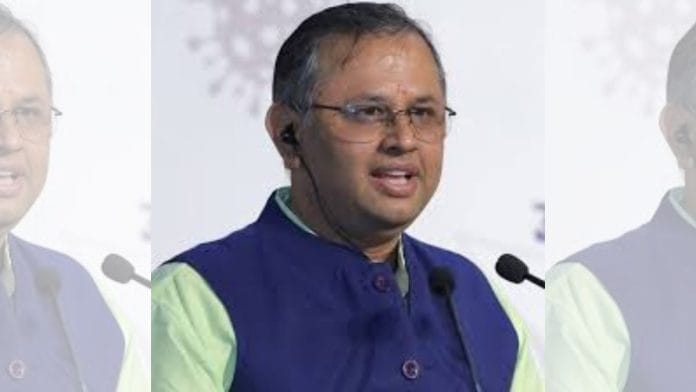New Delhi: The central government has justified the appointment of Unnat Pandit as Controller General of Patents, Designs, and Trademarks (CGPDT), while accepting allegations of a departure from standing recruitment protocols in his induction procedure.
Noticeably, the affidavit filed in the Supreme Court to defend Pandit’s appointment is signed by the Union Ministry of Commerce and Industry’s Under Secretary Arun Kumar Gupta, the same officer who, in the past, has issued several show cause notices to Unnat Pandit for violating procedural norms.
Arun Kumar Gupta filed the affidavit in response to a petition by the All India Patent Officers’ Welfare Association (AIPOWA), which has asked the Supreme Court to quash Pandit’s “illegal” appointment. According to the association, the appointment is not in accordance with the duly established procedure—the post should have been advertised, but was not, in the present case.
“It is noteworthy that this departure from the standard recruitment protocol was a considered and reasoned administrative response taken in view of institutional exigency and national interest,” Gupta said in the affidavit.
The government document also detailed the process followed to finalise Pandit’s appointment. Stressing on advertisements released for the post in 2020, the affidavit said that of the 17 applicants who responded, none possessed the requisite expertise or formal training in Intellectual Property Rights (IPR) to discharge the highly specialised functions of the CGPDTM effectively.
Since the process took nearly a year, but no eligible candidate emerged, the search committee—empowered to decide on the appointment—invoked its inherent discretion to name candidates with a science background, or an engineering/law degree.
These nominated candidates, who were not from the original applicant pool, included people who fulfil the higher benchmark expected from the CGPDT, in terms of technical knowledge, regulatory understanding, and public service acumen, according to the affidavit.
The departure from the regular appointment process, according to the affidavit, was prompted by the continued vacancy in the CGPDT office, which impeded decision-making, especially during the COVID-19 years, when medicines and vaccines came under intense national and international scrutiny.
“It is also submitted that appointment made thereafter by the ACC from the recommended panel reflects the application of sound administrative discretion, and hence, never vitiated the objective of the office memorandum of 30 July, 2006, and does not preclude such an exception in justified circumstances,” Gupta submitted in the affidavit.
Meanwhile, Pandit has filed an affidavit in defence of his appointment as CGPDT, providing details of his diverse career, during which he held bureaucratic roles before transitioning into academics.
Pandit has accused the association of venting its “personal animosity” towards him.
“This action by the alleged petitioner (association), and the alleged secretary of the petitioner, appears to be a consequence of notable, bona-fide, and non-corruptive tenure of the respondent, which has evidently created a barrier for the petitioner’s vested interest,” Pandit claimed in his affidavit.
The patent officers’ association maintained in its rejoinder that Pandit’s appointment was arbitrary, and two selection processes before the one that led to his selection were abandoned, without citing reasons. There were advertisements for the post, inviting applications when the search committees met, before their dissolution.
The third search committee was approved, subject to compliance with an office memorandum issued by the Department of Personnel and Training (DoPT) in July 2017. “Therefore, this committee, too, was committed to issuing an open advertisement before finalising the selection,” the patent officers’ association argued.
To Pandit’s claim of a non-corruptive tenure, AIPOWA said, “his notable tenure is falsified, with a number of show cause notices issued by the ministry itself”.
Considering the background, the court must interfere with Pandit’s appointment on the grounds of institutional integrity, the patent officers’ association emphasised, adding that Pandit’s nomination was not in consultation with the UPSC. The AIPOWA also argued that the CGPDT post is not on the list of exempted posts, so the consultation with UPSC was mandatory.
(Edited by Madhurita Goswami)
Also Read: Amid Yashwant Varma controversy, Supreme Court judges resolve to make their assets public






